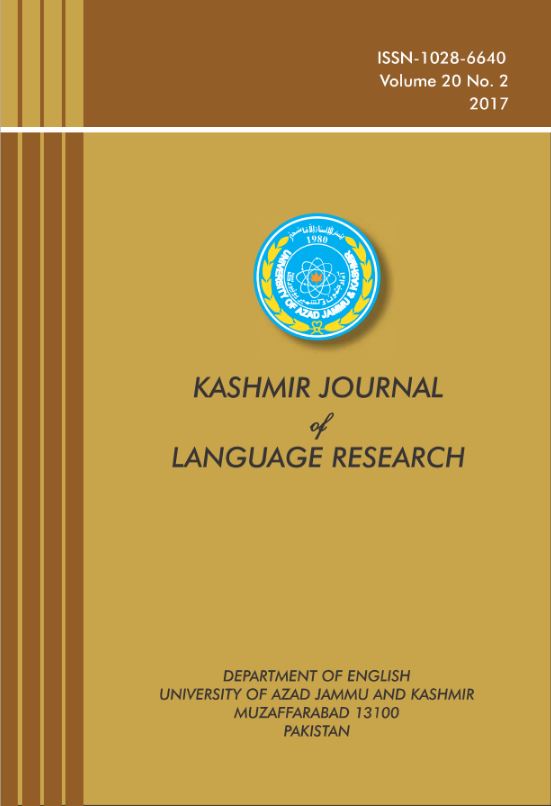Syllogism and Relevance
A Pragmatic Analysis of Classroom Discourse
Keywords:
maxim of relevance, relative relevance, syllogism, classroom discourse, non-observanceAbstract
In the recent past, considerable value has been given to pragmatic analysis by numerous linguists to interpret human speech such as Leech (2016), Morini (2016), Steinkrüger (2016) and Martin & Perez (2014). Relevance, an important element of pragmatic inquiry is a universal function of communication. From the Pragmatics view point of relevance, two contributions are worth mentioning; Aristotle’s Theory of the syllogism and Gricean maxim of relevance. Aristotle’s ideology of logic concentrates on the notion of syllogism: the deduction (Steinkruger, 2015). Grice (1976) proposed the principle to probe relevance through his Maxim of relevance in his Cooperative Principle which suggests that speaker should remain relevant to the topic during conversation. This paper attempts to explore the effectiveness of Aristotle’s Theory of the syllogism and Gricean maxim of relevance in determining the relevance in classroom discourse. The findings of the study are based on the data collected through recordings of thirty postgraduate classrooms. The total transcribed data comprised of 126341 words. The study reveals that Gricean maxim of relevance and Aristotle’s theory of Syllogism are not pertinent in determining relevance in classroom discourse. Furthermore this research is an effort to determine relevance in classroom discourse by designing a model named as Relative Relevance Model of Communication. Keeping in view the importance of context in pragmatic ideology, this study proposes the idea of direct and relative relevance to determine relevance in classrooms discourse.

Downloads
Published
Issue
Section
License
Copyright (c) 2022 Kashmir Journal of Language Research

This work is licensed under a Creative Commons Attribution 4.0 International License.




